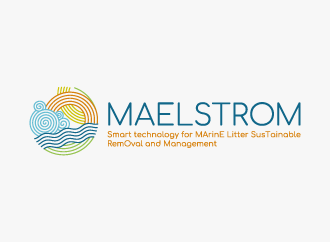
Advancing Sustainable Energy through Innovative Marine Litter Management
The University of Malta has recently demonstrated its commitment to sustainable energy practices by actively participating in cutting-edge environmental projects. A notable example is the involvement of the Institute for Sustainable Energy in the MAELSTROM H2020 project, which focuses on marine litter removal technologies and ocean preservation. This collaboration highlights how academic institutions can contribute significantly to environmental innovation and sustainability goals.
Understanding the Role of the University of Malta in the MAELSTROM Project
The MAELSTROM project, which stands for Smart technology for Marine Litter SusTainable RemOval and Management, aims to develop and implement sustainable solutions to combat marine litter. The University of Malta’s Institute for Sustainable Energy played a vital role in this initiative, primarily by exploring renewable energy applications to offset the energy consumption of innovative litter removal technologies such as the Bubble Barrier.
Specifically, researchers from the university designed and installed photovoltaic (PV) systems on a partner’s building roof located opposite the Bubble Barrier installation site, as well as on floating platforms positioned nearby. These efforts are critical in ensuring that the operation of marine litter removal systems minimizes environmental impact by utilizing renewable energy sources. This approach exemplifies how academia fosters environmentally responsible innovations with tangible environmental benefits.
The Significance of Solar Power in Marine Conservation Technologies
Harnessing solar energy to power marine conservation tools not only reduces dependency on fossil fuels but also enhances the sustainability of long-term environmental management. The PV systems installed by the university contribute to making the Bubble Barrier a more energy-efficient and eco-friendly technology. Such integration of renewable energy demonstrates a practical pathway toward greener marine litter management practices.
The MAELSTROM Bubble Barrier and Its Environmental Impact
The Bubble Barrier is a technology designed to intercept floating marine debris before it reaches the open ocean. In the MAELSTROM pilot in Vila do Conde, Portugal, the Bubble Barrier successfully prevented litter from progressing downstream, thus protecting sensitive marine ecosystems. The project team conducted repeated surveys post-installation to evaluate the barrier’s effectiveness and assess its ecological impact.
Encouragingly, results indicated a high efficiency rate, with the municipality of Vila do Conde planning to continue its operation independently after the project concludes. This showcases how research-driven innovations can become sustainable, community-led solutions for marine conservation.
Implications for Marine Ecosystem Preservation
By preventing litter from reaching the ocean, technologies like the Bubble Barrier protect vital habitats, reduce pollution, and promote healthier aquatic environments. The University of Malta’s support in integrating renewable energy solutions further amplifies the positive environmental outcomes, aligning with global efforts to combat marine pollution sustainably.
Educational and Research Benefits for the University of Malta
Participation in projects like MAELSTROM offers multifaceted benefits for the university’s academic community. It provides valuable practical experience for students and researchers in areas such as renewable energy systems, environmental engineering, and marine sciences. Professors like Prof. Luciano Mule’Stagno and Dr. Marija Demicoli have been instrumental in steering these initiatives, fostering a research culture that prioritizes innovation and environmental responsibility.
Furthermore, involvement in international projects enhances the university’s reputation as a leader in sustainability research and opens opportunities for future collaborations, grants, and technological advancements.
Future Directions and Opportunities in Sustainable Marine Management
The success of the MAELSTROM project sets a precedent for further innovations in marine litter management utilizing renewable energy. The University of Malta continues to explore new solutions, advocating for technologies that are both effective in environmental cleanup and energy-efficient.
Ongoing research may include expanding PV installations, developing autonomous marine debris collection systems, and integrating digital monitoring tools for continuous assessment. These initiatives contribute to a broader vision of sustainable, technologically driven marine ecosystem preservation.
A Step Toward Sustainable Marine and Energy Solutions
The University of Malta’s active role in the MAELSTROM project exemplifies how academic research can drive environmental innovation. By integrating renewable energy with marine litter removal technologies like the Bubble Barrier, the university not only supports marine ecosystem health but also underscores the importance of sustainable energy practices in environmental management.
Continued commitment and collaborative efforts in these domains are essential to address global challenges such as marine pollution and climate change. The university’s initiatives serve as a blueprint for sustainable development, inspiring communities and stakeholders to adopt environmentally responsible solutions.
Interested in studying at the University of Malta? Fill out the form to get personalized support from a Studygram expert counselor. We’ll guide you through program selection, admission requirements, and the application process, making it easier for you to take the next step toward your academic goals in Malta.

